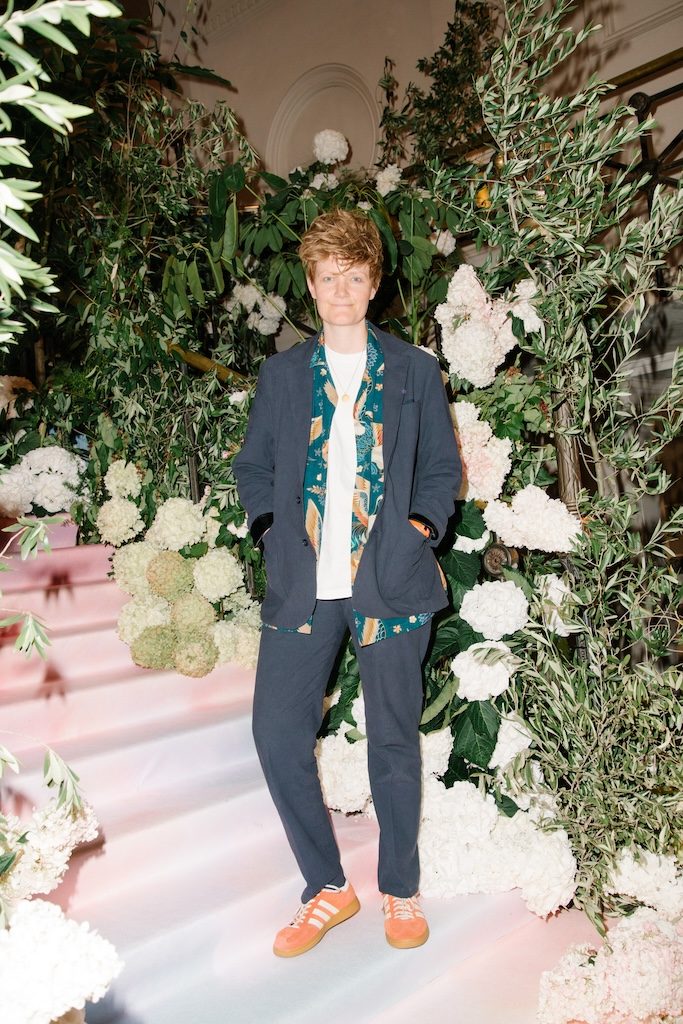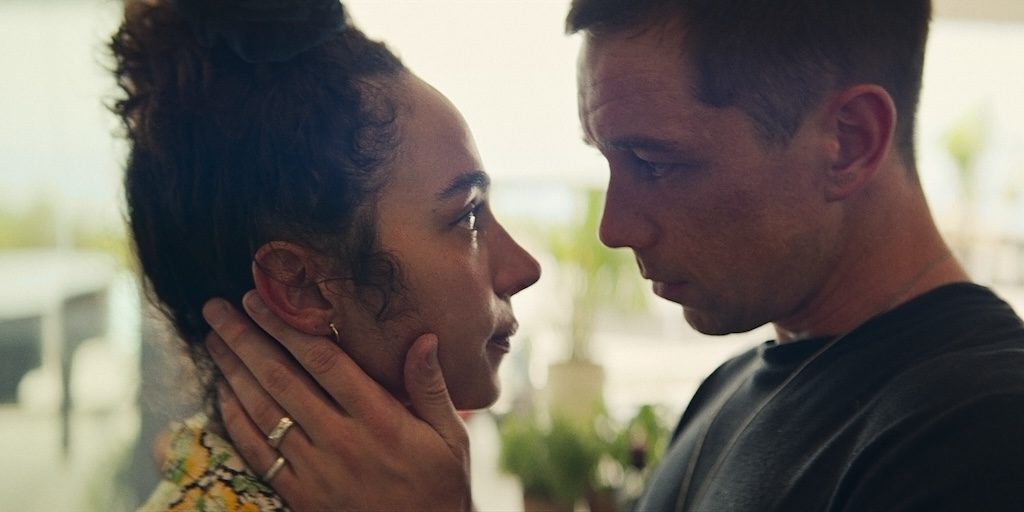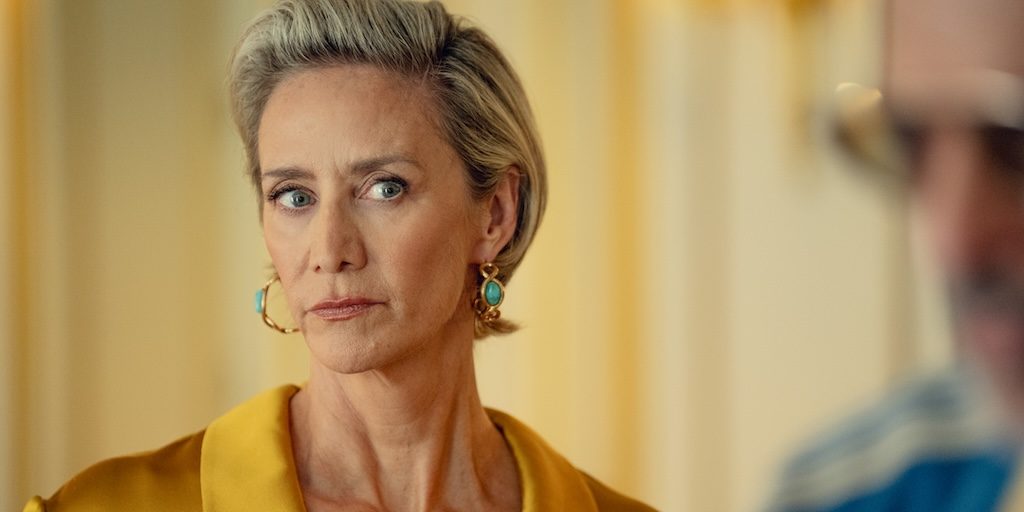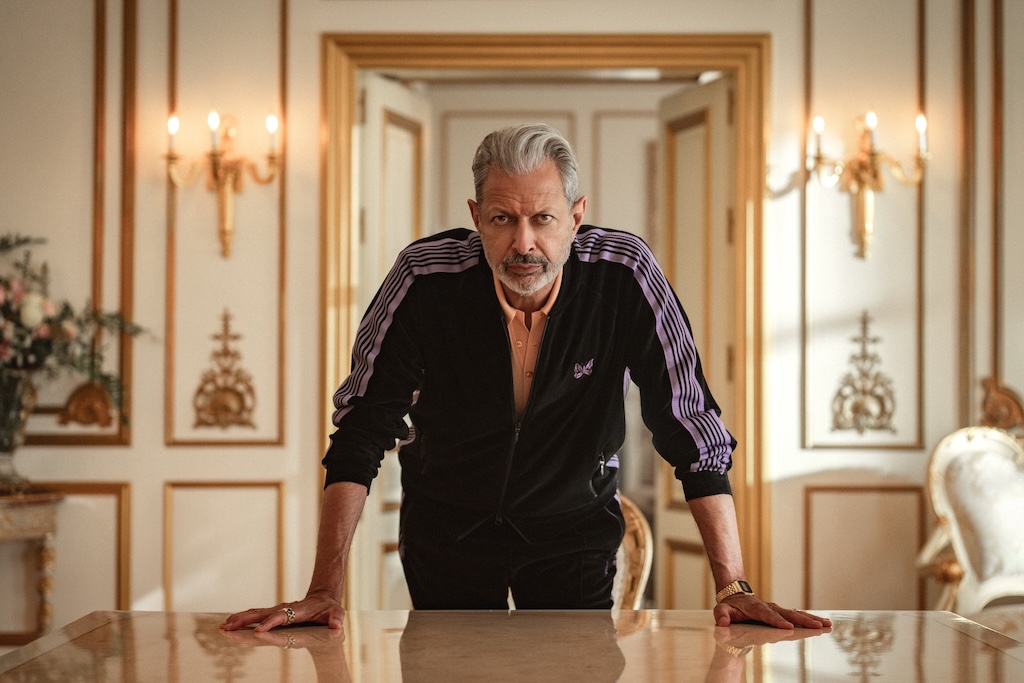“Since I was a kid, I was obsessed with Greek myths and any kind of reinterpretation,” says screenwriter Charlie Covell of their bold television series Kaos, which shook up the Greek gods of Mount Olympus. Charlie cites their love of Clash Of The Titans and the children’s versions of Troy as key sources of inspiration for the darkly comedic show.
As Covell got older, they were influence by Percy Jackson And The Olympians, Margaret Atwood’s The Penelopiad, Jeanette Winterson’s Weight (a reimagining of the myth Atlas and Heracles) and a book of poetry by Carol Ann Duffy called The World’s Wife, where she takes myths, stories and historical figures, and puts the woman at the center, and flips some of them to shape their storytelling voice. Duffy’s version of Orpheus and Eurydice was a big influence for Covell in creating Kaos.
It All Began With Short Plays
Covell began their career writing short plays. Their first play was a ten-minute two hander in which Clytemnestra was put in the underworld. “The underworld was this dusty, bureaucratic shit hole and she was on a loop talking about her husband sacrificing her daughter to get to Troy and she just couldn’t get over it.”

Charlie Covell. Photo by Bob Foster/ Netflix
Charlie Covell pursued this theme of placing various mythological figures in the underworld which led to Kaos. They originally envisaged the story as an immersive theater piece before it eventually became a limited series for television.
Some fifteen years later after The End Of The F**king World, the stage was set for Kaos. Covell was heavily influenced by Baz Luhrmann’s Romeo + Juliet in terms of reinventing classical plays in a contemporary setting.
“I think making Luhrmann’s classical play and bringing it into a fantastically colorful, vibrant modern setting, had a huge impact on me when I was younger,” notes Covell.
With a team of talented producers and actors, Kaos the play was finally wrestled into a television series.
Start With Zeus
Zeus, the king of the gods (Jeff Goldblum) was the logical place to ground Kaos. Covell was most interested in telling a story of Zeus and his siblings Hestia, Demeter and Hera. His two brothers were Hades and Poseidon. Early drafts of Kaos contained all these characters and other gods, but it became unwieldy.
“It was too enormous and there was no space for any human stories to be able to tell the kind of muscular story we wanted to tell. So for me, the focus was on the Olympus triangle of dysfunction, which is Zeus, Hera (Janet McTeer) and Dionysus (Nabhaan Rizwan).”
Ultimately, Kaos is a family drama about Zeus and his siblings, and Eurydice (Aurora Perrineau). “It really came down to which gods were impacting the human story that determined who stayed.”
Covell didn’t specifically set out to reinvent the story of Mount Olympus. Kaos had to work as a story in its own right. “I never wanted anyone to feel they had to do homework and know the myths to understand it.” However, there are Easter eggs constantly scattered throughout the series to satisfy Greek mythology buffs.
I think Kaos is a contemporary other. It’s slightly kinked, it’s slightly adjacent to our world
The world of Kaos had to feel familiar. “We stray quite far away from some of those myths. Some characters and myths change wildly and some of them stay closer to the source material with various interpretations.”
Charlie Covell points to Episode 5 titled The Thread. “It’s a nod to The Thread and the Labyrinth and Ari’s unraveling of the truth about herself and her life. Her journey into the labyrinth is one of self-discovery and an understanding about her father and her brother.”
A Tale Of Power
Kaos covers many themes about the interactions of humans and gods, but a recurring underlying theme is the old adage of “power corrupts and absolute power corrupts absolutely.” Zeus is driven by his perception that humans no longer fear him as much as they once did. The gods are abusing their power and humans are realizing theirs.

Riddy (Aurora Perrineau) & Orpheus (Killian Scott) Photo courtesy of Netflix
Ancient Greek mythology reflects the timeless and contemporary relevant concerns of humanity. “The myths would speak to that moment because what they explore are completely and utterly human. These themes of love, power, death, abuse of power, oppression, dysfunctional families are as old as the hills.”
Pitching Kaos
Charlie Covell referenced Baz Luhrmann’s Romeo + Juliet when pitching Kaos to Netflix to give them a feel for the tone, visuals and music for the show. “I quoted Baz Luhrmann’s Verona a lot because I think the way he takes you into that world is so kinetic, bright, modern and dangerous; but also kind of enthralling. You want to be there despite all of the danger. It’s such a feast for the senses.”
“I took this big white board and I stuck pictures of the kind of actors I could imagine in these roles. I made a family tree of the gods and the humans.”
“We talked about how earth was the place that everybody wants to be, even the gods, because Olympus is a sterile luxury, and in the underworld, everyone’s dead.”
Writing Process
Charlie writes to music and has playlists for each character.
They describe the writing process as more iterative than outlining. As is often the case in television, they shot scenes out of sequence and scripts were finessed while shooting. “I was constantly writing, rewriting, or getting notes from Netflix as we were moving.”

Hera (Janet McTeer) Photo by ustin Downing/ Netflix
Some aspects of the original scripts stayed the same, or changed little, while other parts had dramatic shifts in terms of stories and character beats as the story “unfolded on camera.” Some changes were merely dialogue punch ups as a result of workshopping with the actors.
The first fifteen to twenty minutes of the pilot episode were the most challenging to write according to Covell. “You need to take the audience’s hand, navigate them into a big world, orientate them, make them feel comfortable, and not patronized or confused.” Crete and the gods were introduced. At one point, the underworld was also going to be introduced in the pilot episode, but there were too many stories running simultaneously. “So we made the decision to introduce the earth and the Olympus in Episode One, and then the underworld in Episode Two.”
Prometheus (Stephen Dillane) used a lot of voiceover to anchor the audience in a funny and deadpan way. “He was driving the story narration for the audience and allowing them to understand where they were.”
The final episode concluded all the storylines. “You want to tie up the loose ends, but also subtly lend itself to season two, three, four.” Covell pitched three seasons to Netflix. It’s helpful to have a strong sense of where the story might go, without assuming there will be future seasons.
“It was about making all of those stories come together in a way that was satisfying and to connect those human characters and feel that collective power of those three human beings.”
“There was a desire to make the end of the series satisfying enough, even though obviously there’s a hook for more.”
Final Thoughts
“In order to be a successful television writer, you need a lot of luck. And I think you need a lot of patience to develop mental strength and patience. Develop a tough skin because sometimes things take longer, but they also get better. You need to be able to metabolize notes and understand how they might help your script. Take a holistic approach to the work.”
